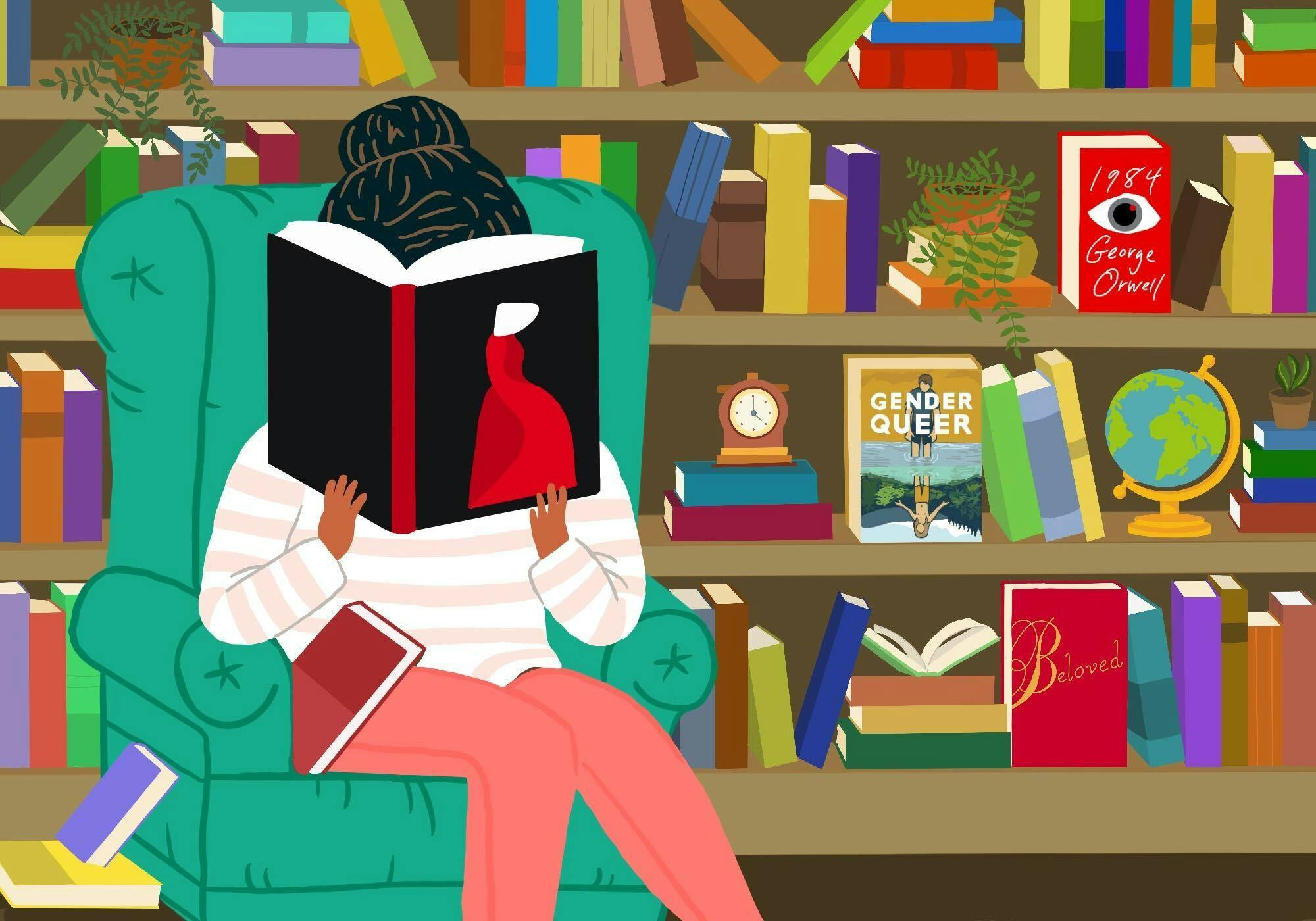How ironic is it that a book warning its readers about the dangers of censorship can become censored itself? Many books that tell of human struggles or attempt to caution against emerging threats are more and more often being pulled from the shelves of libraries and bookstores.
To ensure that important perspectives and voices are not silenced in East Lansing, Michigan State University public relations students are working with EveryLibrary through the Public Relations Student Society of America’s (PRSSA) Bateman Team, a case study competition for students across the country who are pursuing careers in public relations. EveryLibrary is a national organization that aims to promote banned books and advocate against policies that can harm public and school libraries through engaging with state legislatures.
Heavy depictions of violent, offensive or sexual content are the most common reasons for a title to be banned or challenged. Additionally, books are being hidden from readers if it details experiences with race, gender and sexuality. MSU's PRSSA seeks to highlight the importance of keeping all kinds of books available for readers.
“I think (these topics) make people very uncomfortable and people want to stay in what’s comfortable," public relations junior Johanna Williams said. "Ignorance is bliss.”
History is not always a happy subject to study, and it can be easy to gloss over the unpleasantries. But the past shaped the present. Events that took place hundreds of years ago still have effects on our daily lives, and being able to contextualize modern issues is vital in fully understanding them, explained public relations sophomore Nicole Jolley.
“We learn from other people’s experiences, we learn from the past, and that’s how we grow,” Jolley said.
Many titles get banned simply for shining a light onto the things that society would much rather keep in the dark. In the midst of this, it is important to listen closely to the voices of those who are directly impacted by these issues, William said.
“'The Hate You Give' is a banned book that addresses racial inequality and police brutality," Williams said. "Books like that are confronting the issues, which is the only way we’re going to get action.”
When certain voices are silenced, the world can become very one-dimensional. Keeping stories that tell of different identities and experiences out of the hands of younger audiences forces them to accept reality as only a fraction of what it truly is, explained public relations junior Allysa Feldpausch.
“Pulling a lot of these titles is going to inhibit a lot of kids' self discovery," Feldpausch said. "I figured out who I was through seeing it expressed. It can make you feel not as alone, or it can broaden people’s perspectives and make them more open minded. It helps to walk in another person’s shoes and understand other people’s experiences.”
Many familiar titles are on the banned list, despite being widely taught in schools. Books that teach students to watch out for certain red herrings often get dissected in English classes to warn of very real dangers. Ironically, these books get removed from shelves for the same reasons they get added to curriculums.
“I read 'Fahrenheit 451' in my high school English class," public policy junior Aubrey Marquette said. "I feel like it really opened me up to thinking outside the box about certain things. If I didn’t have the opportunity to read those books, my world would be very small. I think it’s important to have these in schools so kids can start thinking more critically.”
The MSU chapter of PRSSA will hold a tabling event where anyone can read and learn more about these books on Feb. 21 from noon to 3 p.m. at the MSU library. They also plan to host a discussion panel alongside other guests on Feb. 24 at 5:30 p.m. in the Union, where they can talk more about the importance of these at-risk titles.
Banning books can limit free speech in classrooms, presenting worries for future educators like secondary education senior Claire Murphy as they are unsure of what topics will and will not be safe to share with students.
“It’s still confusing and new, we talk about it in my education classes but we’re never really given any tools,” Murphy said. “I understand books getting banned for violence and inappropriate words, but there’s a line where censorship in schools goes too far. I think it’s a little blurred currently.”
In schools across the country, teachers can get fired for talking about something that the district or state has deemed inappropriate or offensive for a teacher to discuss. Murphy said this makes it difficult for educators to do their jobs effectively.
“It restricts teachers’ abilities to talk about social issues or to bring in diverse examples to give students the representation that they really need to see,” Murphy said. “It can lead to teachers not talking about important things because they’re scared they’re gonna lose their jobs over it.”
At the end of the day, art and literature may be subjective, but reality is not. When history is distorted and simplified, everybody ends up paying the price of being misinformed.
“These are real things, and by censoring these books you’re not stopping the issue,” Murphy said. “You’re just stopping students’ ability to think critically and to learn from a different perspective.”
Support student media!
Please consider donating to The State News and help fund the future of journalism.
Discussion
Share and discuss “MSU's PRSSA advocates against book bans” on social media.







